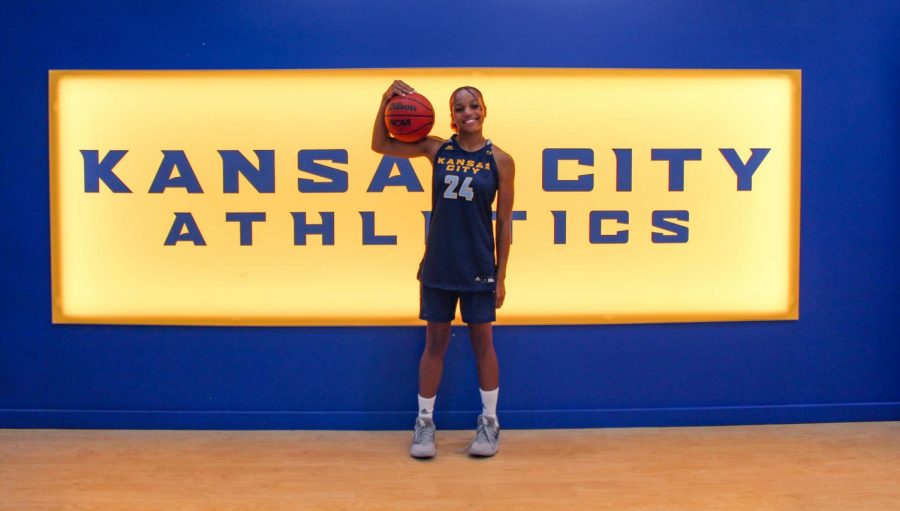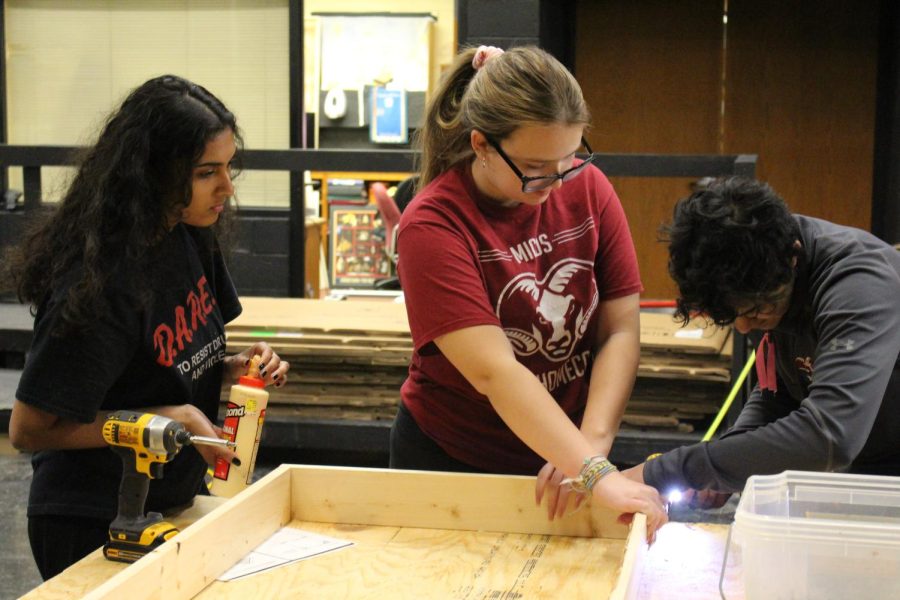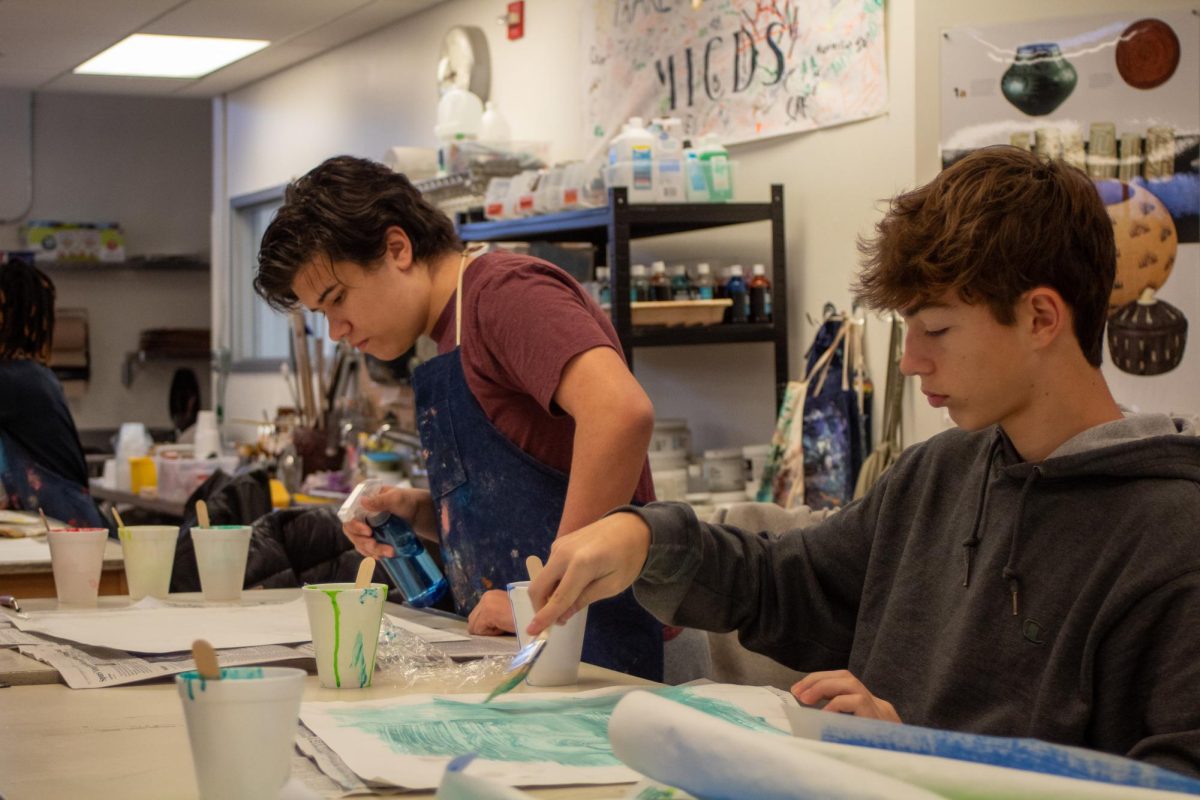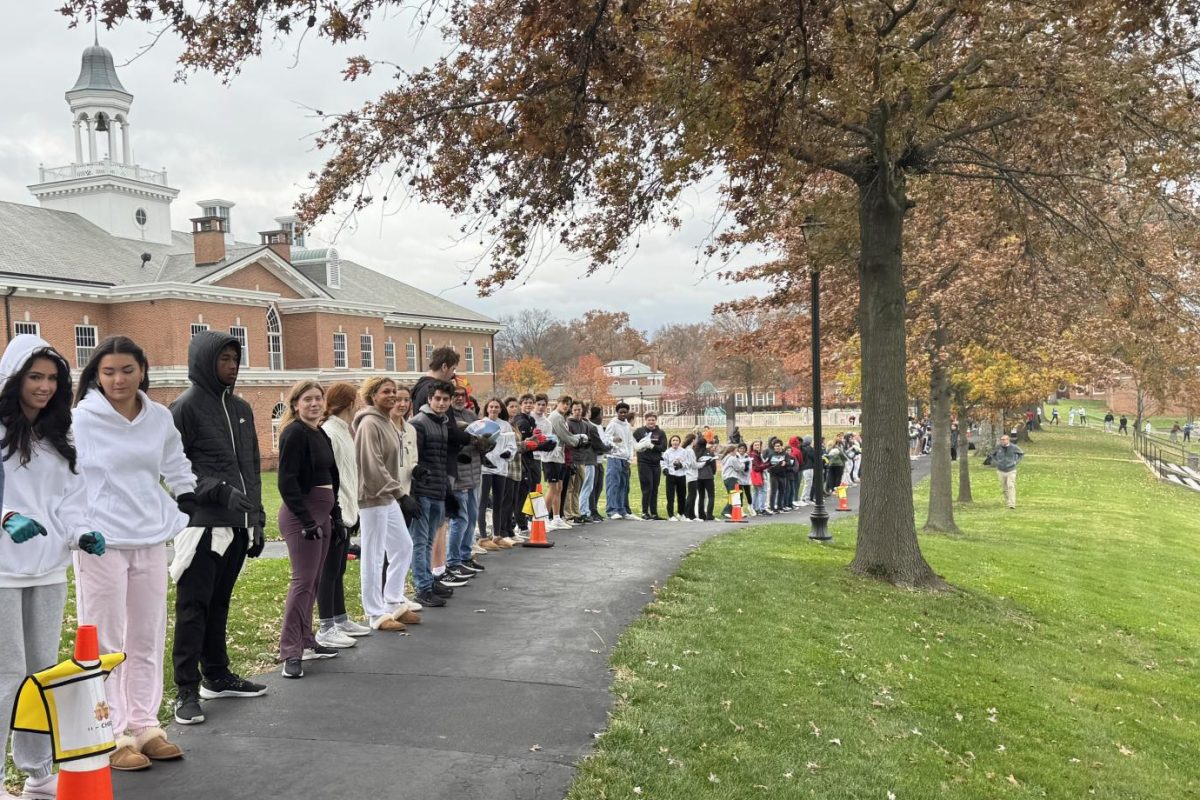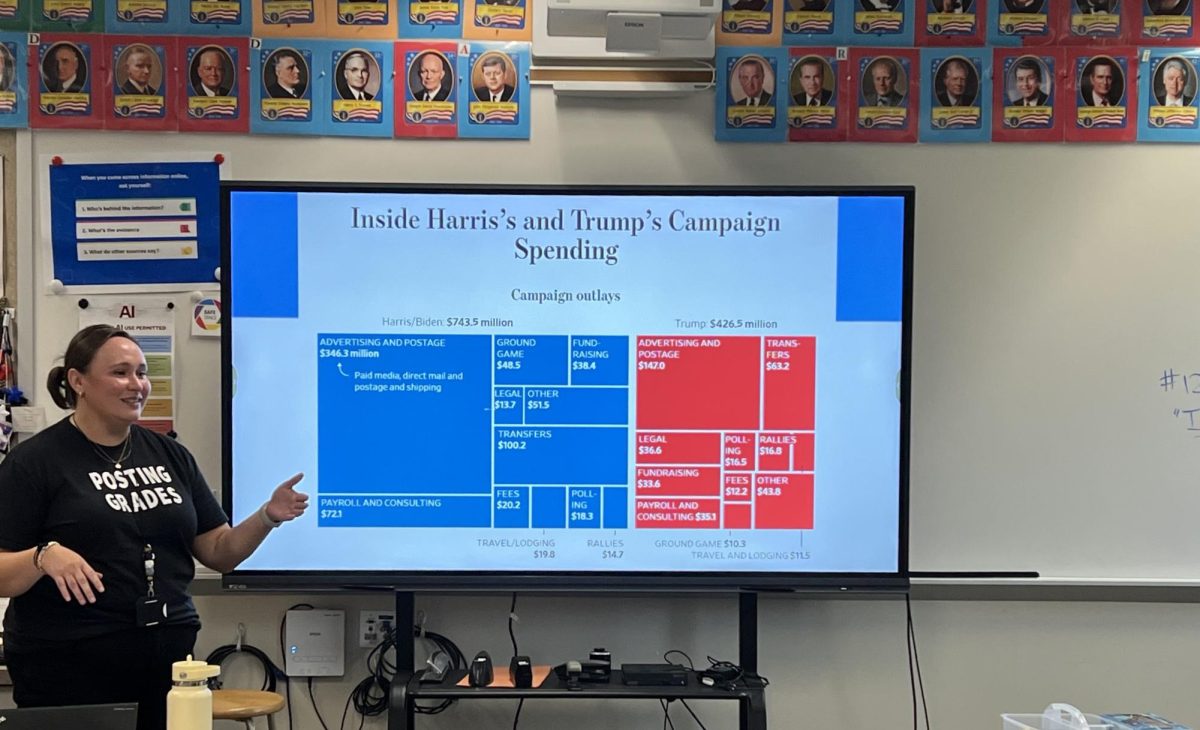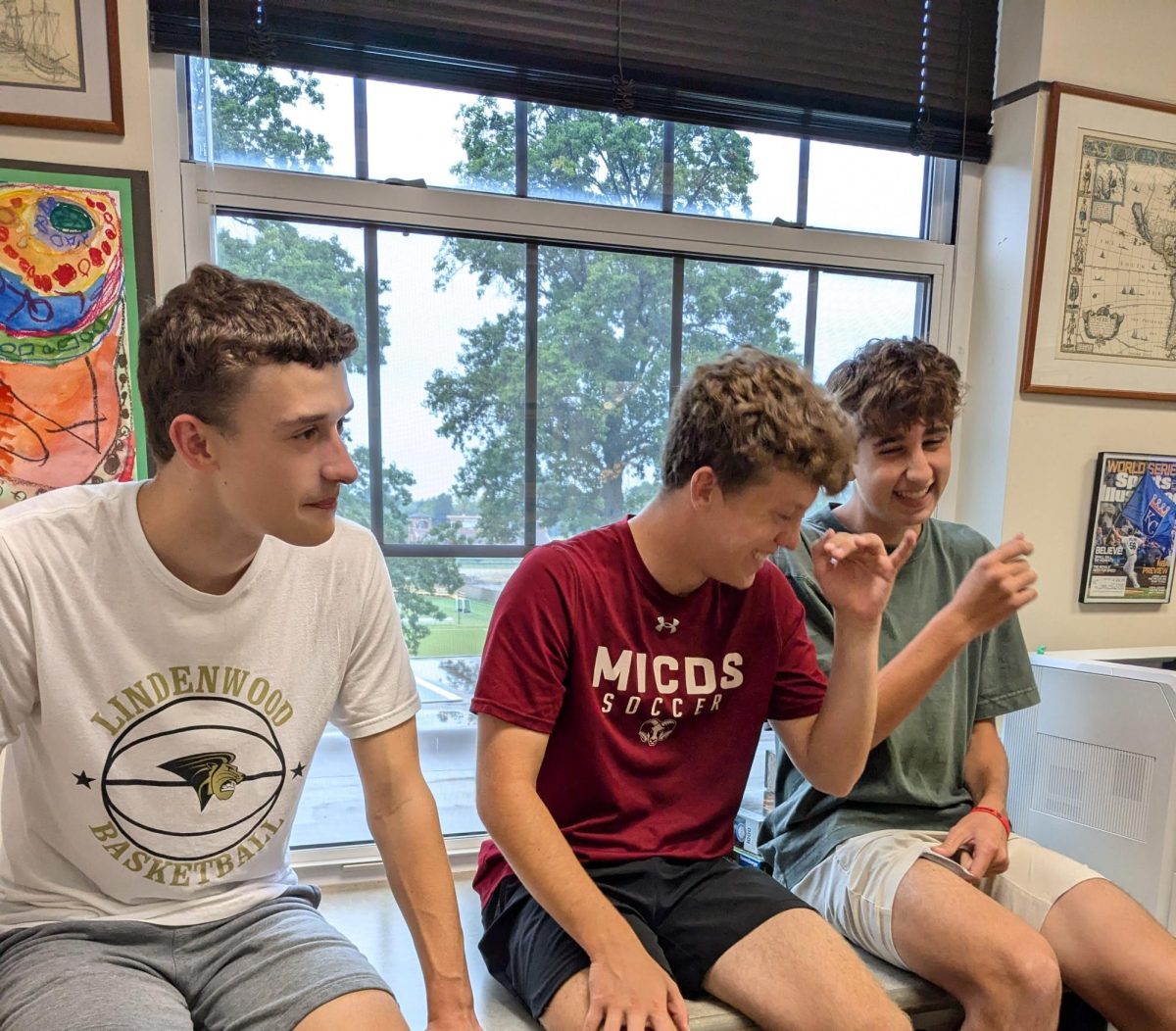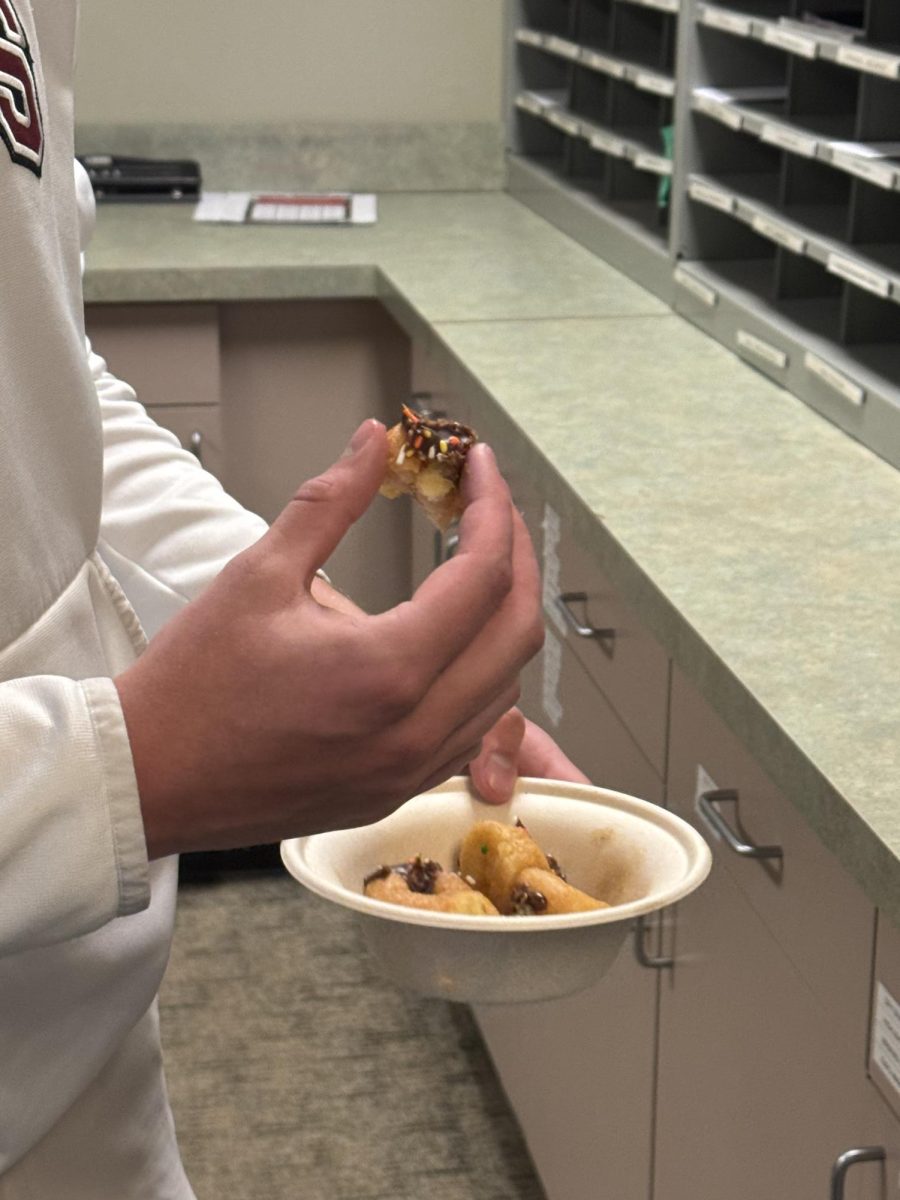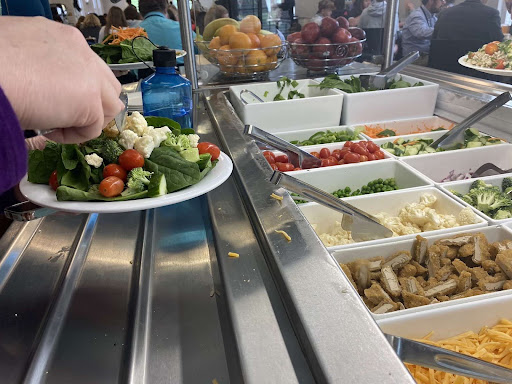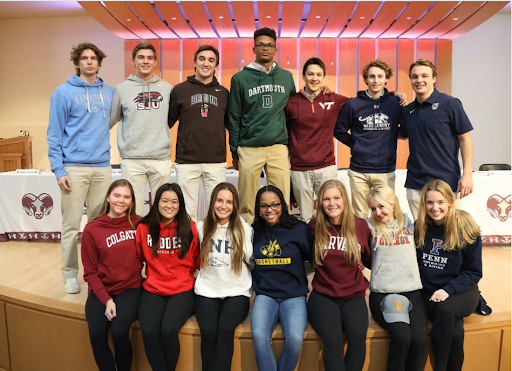MICDS Lunch Team Deals With COVID-19
December 14, 2021
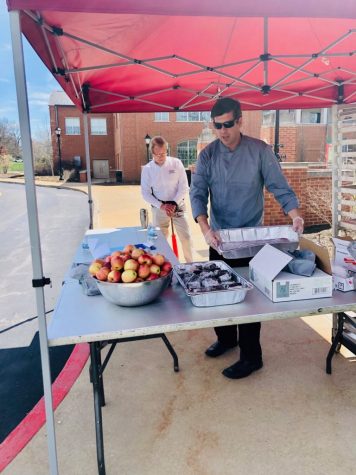
MICDS uses lots of environmentally friendly processes that keep our school eco-friendly. The cafeteria always has a compost container, and many healthy choices of food are served at lunch. Vegetarian and vegan lunches are always prepared each day. But, with safety guidelines forced by the worldwide pandemic, MICDS, last year, had to alter their previous lunch system. So, I proposed the question: How has COVID-19 affected the way that MICDS creates environmentally friendly lunches?
Earlier this week, The Voice interviewed Ryan Luke, FLIK – Director of Dining Services, and we asked him about how the COVID-19 pandemic has affected the way the lunch system at MICDS works. He was helpful enough to answer many of our questions about how the cafeteria functions, and what the lunch staff did this past year to keep their students safe.
COVID-19 precautions were enforced quickly within Missouri after the pandemic began in the United States. These precautions forced MICDS to spring into action to ensure that the lunch procedures were ready for the school year. To respond to the COVID-19 crisis, MICDS carried out new safety processes to help the wellbeing of their students. One of the main safety processes was packaging foods. The dining services made sure that the packages used for lunches were biodegradable, so they could be composted. Food waste is a worldwide problem and it is estimated that between 30-40 percent of the food supply is thrown away in the garbage. These biodegradable packages will decrease the amount of food waste that MICDS produces, which contributes to the school’s overall wellness. The biodegradable packages would also decrease the amount of plastic MICDS uses; overuse of plastic is another worldwide problem in which MICDS is contributing to the solution.
Without a doubt, packaging boxes for students was very difficult and labor- intensive. Boxing every meal took loads of time, and it didn’t help that there was a shortage of staff since COVID-19 struck. According to a report released by Joblist in July, 38% of former restaurant workers surveyed stated that they would no longer be seeking work in the hospitality industry. Restaffing was difficult because the new staff members had to take on more responsibility due to fewer employees. This meant that MICDS had to act fast, or else they would not have enough employees when school began. Thankfully, MICDS recruited employees fairly quickly, and the newly added staff pushed through. There were also supply chain issues. Prices on different foods, that before COVID-19 were available weekly, have decreased because of the pandemic’s effect on the lunch system. In all, although the lunch department faced many challenges during the COVID-19 pandemic, they persevered and exceeded expectations regarding safety this year.





